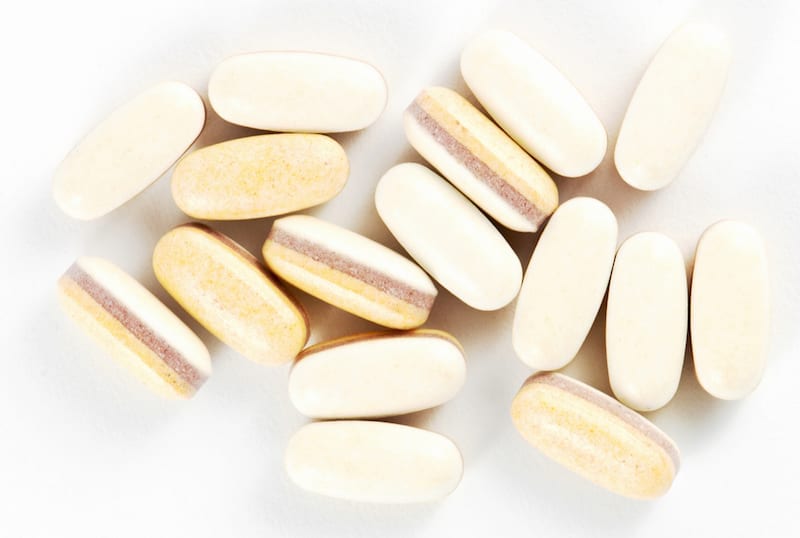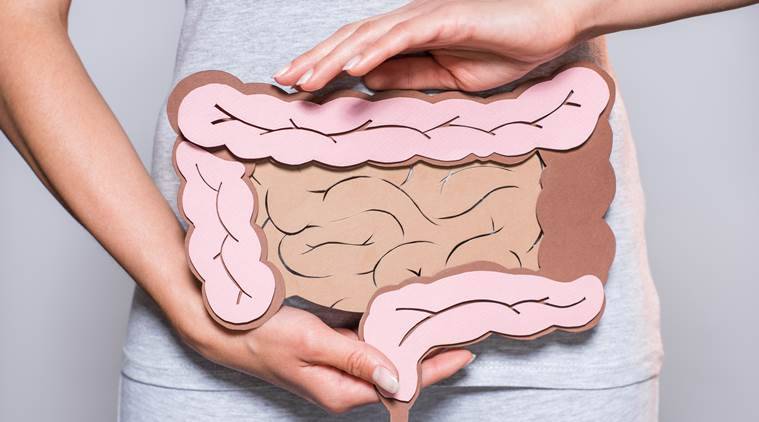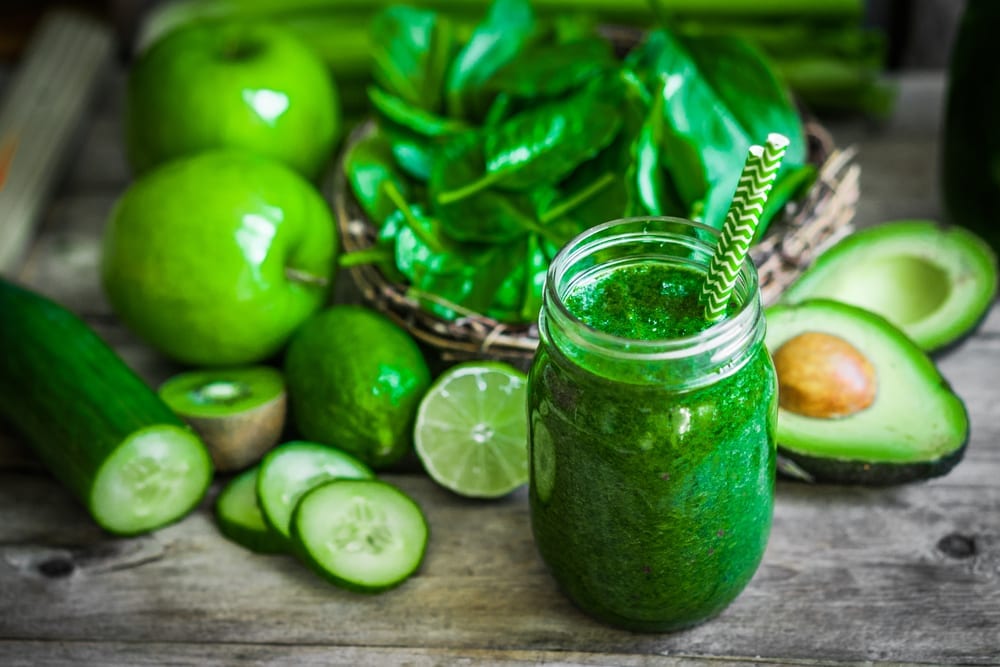Here is just a sampling of what scientists know so far:
Allergies: Emerging evidence suggests that probiotics may help prevent and even treat seasonal allergies like hay fever and environmental allergies to things like dust mites. Researchers believe that probiotics can help allergy sufferers by modulating the immune system and limiting the release of inflammatory chemicals involved in the allergic response. Most of the research for probiotics for allergies has been done on Lactobacillus and Bifidobacterium, showing that these probiotics can help with prevention and the reduction of allergy symptoms.1
Brain Health: Research shows that the gut and brain are connected via a partnership called the gut-brain axis. This suggests that the microbiota in the gut can impact what happens in the brain. One clinical trial published in the journal Frontiers in Aging Neuroscience found that Alzheimer’s patients who drank milk made with four probiotic species for 12 weeks scored better on a test to measure cognitive impairment compared with those who drank regular milk.2 Another study in the journal Gastroenterology found that women who ate yogurt with a mix of probiotics twice a day for four weeks were calmer when exposed to images of angry and frightened faces compared with a control group.
Heart Health: According to the American Heart Association, probiotics may help to maintain healthy blood pressure, especially in those already diagnosed with hypertension. Probiotics may also help to keep cholesterol in check. Some studies show that one probiotic specifically – L. reuteri – can support a healthy balance between good and bad cholesterol by breaking up bile salts. But these benefits may just be the tip of the iceberg. Early findings in the journal Gut Microbes suggests that probiotics may also boost vascular function and may even improve cardiac remodeling in the heart.3
Immunity: Behind digestion, immunity is the second most popular use of probiotics, since about 70 percent of the body’s immune cells reside in the gut. The research is vast. One recent analysis examining 20 published trials concluded that Lactobacillus and Bifidobacterium probiotics can cut the duration and severity of cold symptoms and lead to fewer missed days at work or school.
Specifically, Swedish researchers in one large study found that Lactobacillus plantarum HEAL9 (DSM 15312) and Lactobacillus paracasei 8700:2 (DSM 13434) strains, given at 1 billion CFUs per day, can drop common cold symptoms by about two and a half days. Another study examined the effects of a three-strain probiotic blend (Lactobacillus helveticus Rosell-52, Bifidobacterium bifidum Rosell-71 and Bifidobacterium infantis Rosell-33) on kids’ sick days. Researchers found that just 25.8 percent of the children who took the probiotics had a sick day, whereas 42.8 percent of the children who did not take the probiotics missed school.
According to a double blind, randomized, controlled trial, the intake of probiotic bacteria Lactobacillus gasseri (PA 16/8), Bifidobacterium longum (SP 07/3) and B. bifidum (MF 20/5) for at least 3 months significantly shortened common cold episodes by almost 2 days and reduced the severity of symptoms.
Oral Health: High sugar intake, as well as poor oral hygiene, are the primary contributors to halitosis (bad breath) as well as periodontal disease. A growing number of studies suggest that certain species of Lactobacillus can offer benefits for oral health and play a role in preventing and treating oral infections, dental caries, periodontal disease, oral candidiasis (thrush) and halitosis. Research suggests that probiotics reduce the levels of pathogenic bacteria in the oral cavity, reducing inflammation and producing substances (lactic acid, hydrogen peroxide) that have antimicrobial effects. A review of 12 randomized clinical trials concluded that probiotics can be beneficial for the maintenance of oral health, due to their ability to decrease the number of oral pathogens.5
Skin Health: Skin is the largest organ of the human body, and is highly dependent on nutrients to achieve peak performance. So, it makes sense that an unbalanced digestive system, which can deprive the entire body of nutrients, can also lead to dull and problematic skin. The good news is that emerging research shows that probiotics may have a role to play in skin health.
One study randomized young women to receive either conventional yogurt or yogurt enhanced with Lactococcus lactis strain H61 for four weeks. Blood samples taken at the beginning and end of the trial measured skin hydration and elasticity, as well as sebum and melanin content. After four weeks, skin hydration among all women in the study increased. However, sebum content of the women who consumed the probiotic yogurt rose significantly, while the levels of the women who ate the conventional yogurt did not.6
Weight Control: Researchers know that overweight and thin people have very different gut bacteria populations, suggesting that bacteria may be a factor when it comes to obesity. In fact, when overweight people begin to lose weight, their gut bacteria starts to resemble that of thin people.
One probiotic strain in particular, Lactobacillus gasseri SBT2055, was found to promote the body’s excretion of fat during bowel movements, instead of absorbing it. Put to the test, a study among 30 healthy Japanese adults found that five billion CFUs daily for just one week was enough to start reducing belly fat and promoting weight loss. Another study showed that when 28 healthy but overweight participants ate yogurt containing both Lactobacillus fermentum and Lactobacillus amylovorus, all of them lost body fat. In fact, people who ate yogurt fortified with the L. amylovorus strain lost four percent body fat, a statistically significant figure, suggesting that gut microflora may increase metabolism.7
Why? Researchers speculate that probiotics improve blood glucose and weight control by cooling inflammation and balancing the gut-derived hormones that regulate appetite.
Mood: The gut-brain axis is an emerging area of microbiome science, which suggests that the microbiota in the gut can impact what happens in the brain. According to one study[1], supplementing with probiotics can lead to less stress and anxiety, better memory and lower levels of cortisol in the morning. This research came on the heels of a British study that suggested that prebiotics may soothe anxiety.8
Scientists speculate that the gut-brain axis is powered by the fact that gut cells make 95 percent of the body’s serotonin, along with other mood-enhancing neurotransmitters such as GABA, dopamine, adrenaline and noradrenaline.
Apart from the digestive benefits that probiotics provide, you can see that they offer a great deal of other health advantages too. Try adding a probiotic to your daily routine and reap the benefits in other areas of your body!








